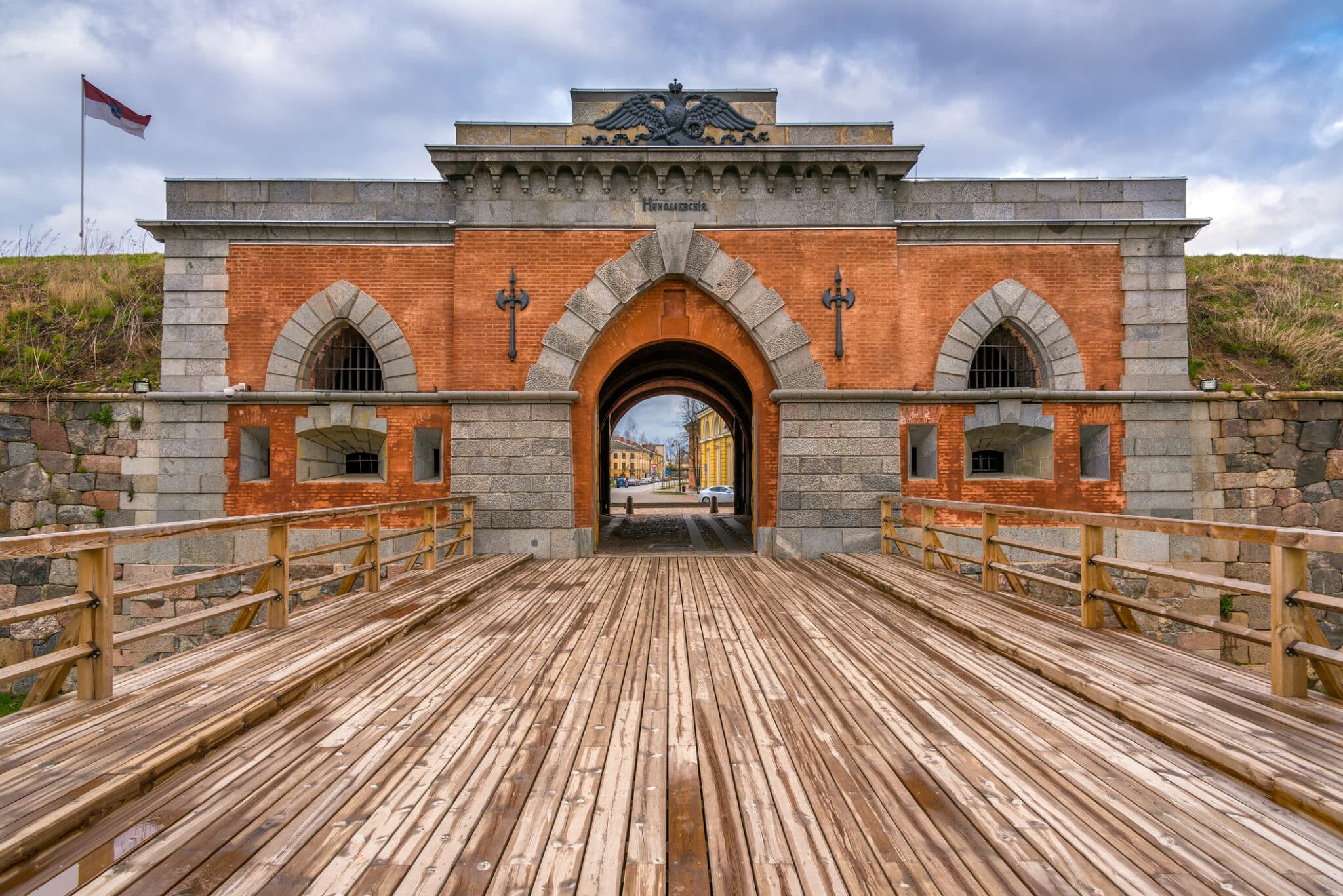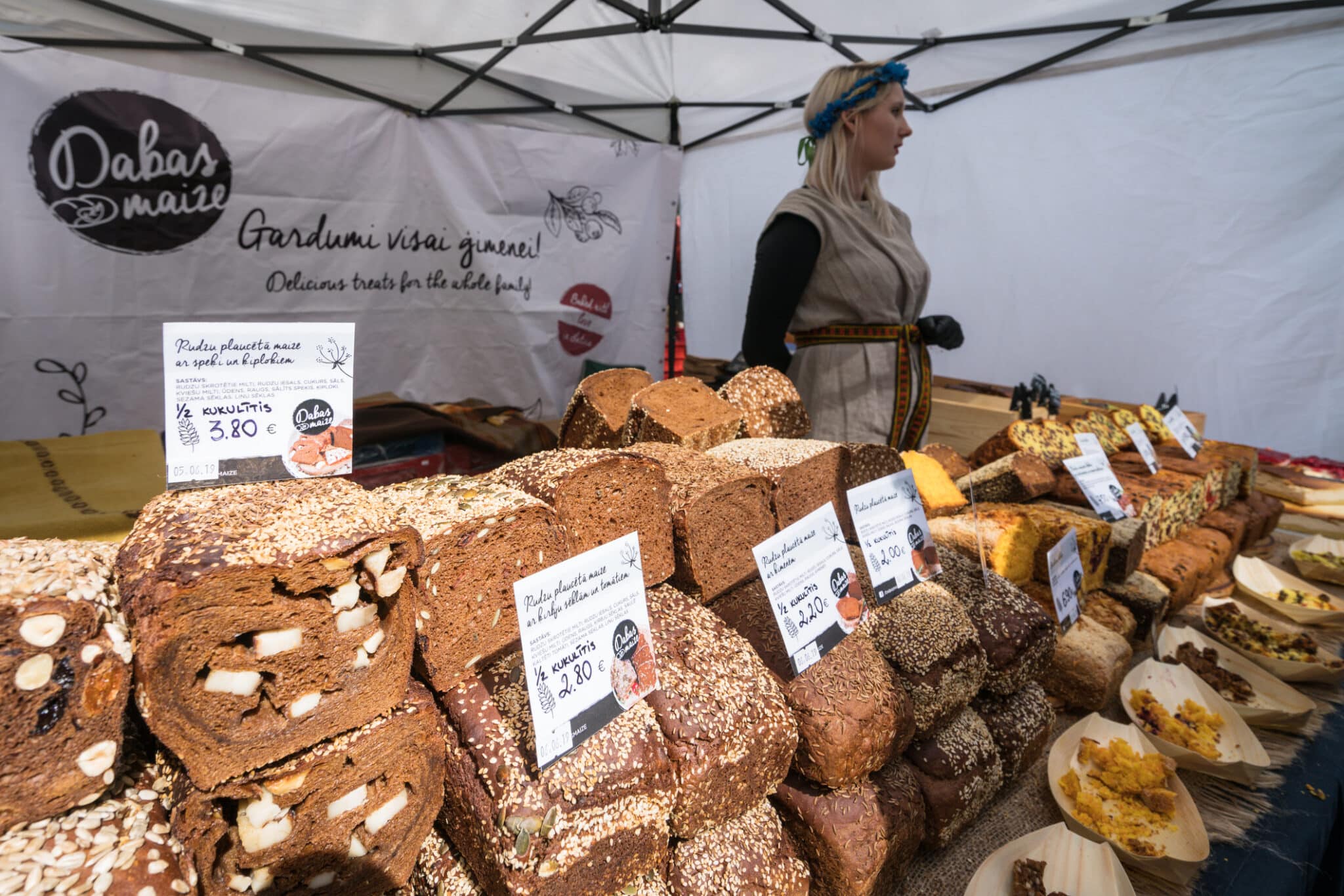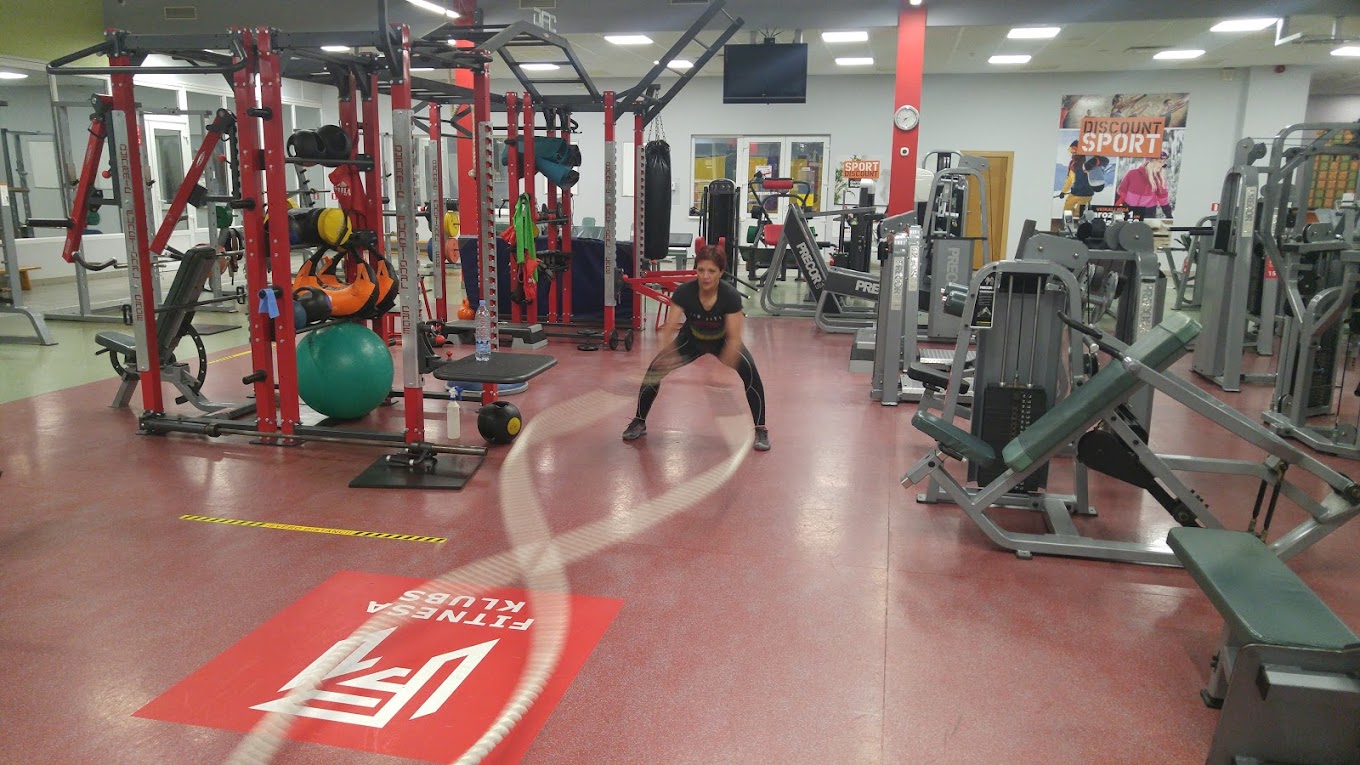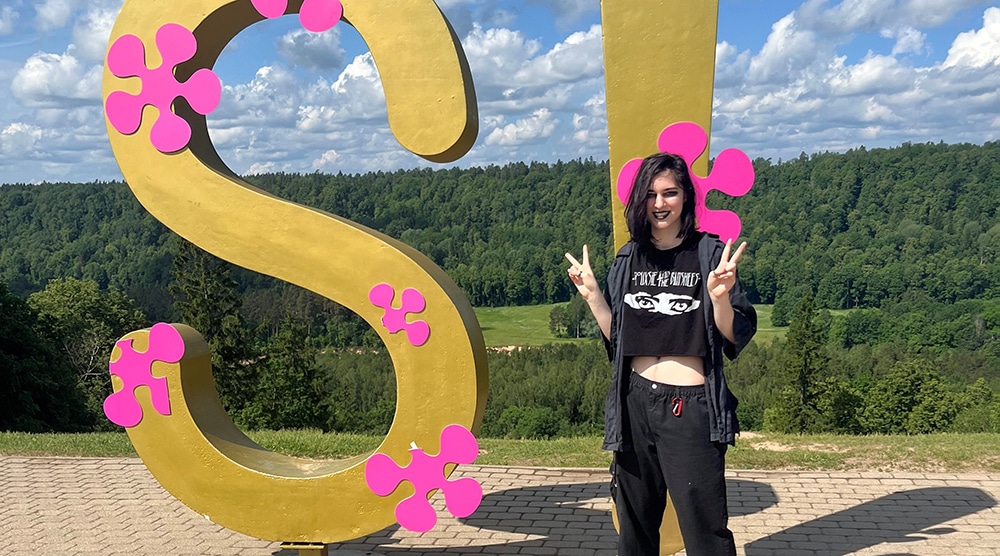The following interviews were taken Eddy S., a student who studied with SRAS over the summer of 2024 who is lesbian and trans. In addition, those sharing their thoughts are John Doe, a gay trans man who wanted to remain anonymous, and Jane Doe, a lesbian trans woman who also wanted to remain anonymous. SRAS thanks these individuals for reporting on thier experience as representatives of the LGBTQ+ community studying abroad in Riga.
Did you meet local members of the LGBTQ+ community while in Riga? What was their perception of being LGBTQ+ in Riga?
Jane Doe: I did not talk with many community members, but I asked one of my Latvian friends what the average Latvian perspective of gay people was, and she said that Latvians do not mind lesbians or “chill queer people,” but that there is a dislike of openly gay men, due to the stereotype of them being loud and flamboyant. Of course, the current President of Latvia is gay, and people did not really seem to care.
Eddy S: There was a weekly conversation club when we were practicing Russian, and the locals we talked with were a part of the LGBTQ+ community. LGBTQ+ people are everywhere in Riga, though; at least once a day I would see someone with a lesbian pin, or a pronoun pin, or gay and lesbian couples being cute in public. Especially in the younger generations, everyone feels largely accepting (or at least tolerant), and most of the way the teenagers style themselves would be assumed to be queer if they were in America. The graffiti walls even had some friendly queer jokes where it was clear gay people felt comfortable writing them, and not much homophobia. I also heard lots of songs about lesbian relationships from pop girls like Chappell Roan and Billie Eilish. Locals always talked about the new law allowing gay marriage/partnerships (put into place while I was staying here!) as a positive thing as well.
Did you find any local community spaces (clubs, organizations, social media pages, etc.) for the LGBTQ+ community in Riga? Could you recommend any?
Jane Doe: I went to a gay night club in Riga called Skapis, and there were some other clubs and bars that were not explicitly gay but felt more friendly to me, like the Depeche Mode Bar and the Cartel bar in old town. During Pride, there were lots of rainbow decorations and a small Pride parade. There were Pride celebrations and community discussions, but they were all in Latvian so it was hard to really participate as much as I would have liked to. Other classmates mentioned going to talks and arts and crafts opportunities, so there was lots to do if you wanted to engage with other gay people.
Eddy S: There was obviously the TOP gay bar near Central Station, but I preferred Skapis just because it was small and played more hyperpop. When I went, there was a clear Charli xcx theme and it was really cute and fun. The Depeche Mode bar is probably one of my favorite places to go for drinks, especially if you like 80’s synthpop. It is very small but so cool and the drinks are delicious. Our organizer for SRAS had lots of social media pages to check out when I asked her, and overall it feels like there is a carved out place for the LGBTQ+ community in Riga. All the coffee shops and bubble tea shops also feel very queer-friendly.
Did you feel safe as an LGBTQ+ individual while in Riga? Did you feel accepted?
John Doe: I felt generally safe, but as a transgender person who passes well, I do not know how safe I would feel if I did not pass so well. Since I only hung out with non-LGBTQ+ classmates who did not know I was gay and trans, I felt accepted the same way a cis-person would be. I didn’t really do much to connect with local gay people or go to gay clubs.
Jane Doe: While I did experience a lot of harassment in the form of open staring from passers-by, I did not get any negative attention once I actually spoke to people. I am also a very alternative-looking woman, so I would say that 50% of the harassment I received was because I am a woman, 25% was because I dress alternatively, and the other 25% because I am trans and don’t always pass perfectly. Other students in the school did not treat me badly and the teachers were wonderful to me. Generally, yes, I felt safe. Less accepted than maybe I’d like, but since back in America I live in a conservative rural area, I felt more accepted than usual. I did not have to deal with misgendering or microaggressions often, which was nice. I pretty consistently was able to use the women’s public bathroom without any issues or weird looks, even though I feel anxious generally when using the public bathroom. Having a supportive friend go to the bathroom with me made it so much easier and less stressful, so I recommend doing that. Older generations would harass me initially because I looked “gay” but would become nice as soon as you start having a genuine conversation with them. Younger men were more likely to be weird about me being a woman or alternative.
Eddy S: I felt reasonably safe in regards to me being a lesbian and trans. More often, the harrassment I got was due to me being goth and a “woman.” Despite not passing well, people were very respectful about my chosen name and pronouns, and I only had to correct people occasionally. Since I am from Texas, Riga honestly felt like a world of a difference (positive) in terms of acceptance for queer people. Occasionally there would be uncomfortable “debates” about whether gay marriage should be a thing due to the politics at the time, but even then it was more respectful than where I live.
What would you recommend to future LGBTQ+ individuals thinking about studying abroad in Riga?
Jane: Number One: do not go anywhere alone. Really, that’s general safety advice but having a supportive friend with you will seriously make everything better. Other things I would recommend are to be more quiet and reserved than usual, so you will blend in more. Take a more reserved and polite approach to socializing and don’t do obvious things that will call attention to yourself (like make out in public or whatever). Understand that people are not going to necessarily use the most up to date political language all the time, not because they are homophobic, but because you are speaking to people in their second or third language and they have not had as much time as English countries have to unpack the language they use about queer people (e.g. saying “a gay” or “a trans”). Be ready to explain discomfort with certain language in a non-accusatory way, and be very polite and overly-apologetic. Try not to make it as much as what a certain person says, just generally explain what specific language or phrases imply. I never had any issues with slurs or violent language, though. People will generally understand. All general safety tips apply, about going out at night and watching your drink (although spiking drinks is not a big issue here). When dressing, I experienced less stares the more “normal” I dressed, so take that as you will.
Eddy S: Find another queer friend to do things with! People will for the most part leave you alone if you are respectful and not by yourself. Check out the bars, clubs, and other spaces and find out what works for you. Parks are great spaces to walk around and see other queer and alternative people. Riga is a lot cleaner and put together than most American cities, so if a place feels unsafe, it probably is. Whisper or talk in low voices when you are talking on the street or at a restaurant, and don’t talk at all on public transit, if you want to not be clocked as an American. In general, I strongly recommend Riga to queer people traveling abroad, because of how easily you will fit in with the average Latvian and how easily you will find others similar to you.
You Might Also Like

Travel Guide to Daugavpils
Arrayed along a curve in the stately Daugava River a three-and-a-half hour train ride from Riga, Dauvapils is Latvia’s second-largest city. It has a small, walkable city center with multiple peaceful parks, historic churches representing multiple religious traditions, a few small but high-quality museums and a unique Napoleonic-era fortress. Daugavpils is primarily a Russian-speaking city, […]

Study Abroad Budgets: A Student Guide
Eurasia today is quite affordable. Students are often surprised how far their dollars will go even in major cities like Warsaw – and very surprised at how far they go in places like Bishkek. However, students can also be surprised at how easy it is to run into troubles – like blocked bank cards or […]

Latvian and Regional Food on a Student Budget in Riga
One of the most exciting things about travel is the ability to try new combinations of flavors and textures! Local food can not only delight your senses, but also introduce you to important parts of the local culture and history. Latvia can, in addition to introducing you to Latvian food, also offer an array of […]

Riga Fitness: Staying Fit While Abroad!
There are affordable gyms, scenic jogging routes, and other fun ways to stay fit while in Riga! Below is some advice on how to take advantage of all that city has to offer. It comes from SRAS staff on the ground in Riga as well as graduates of SRAS programs in Latvia. This resource is […]

LGBTQ+: Study Abroad in Riga, Latvia
The following interviews were taken Eddy S., a student who studied with SRAS over the summer of 2024 who is lesbian and trans. In addition, those sharing their thoughts are John Doe, a gay trans man who wanted to remain anonymous, and Jane Doe, a lesbian trans woman who also wanted to remain anonymous. SRAS thanks […]
